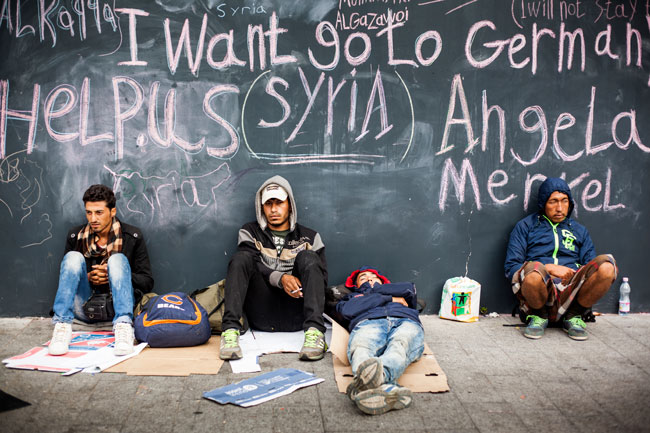
By McGill Reporter Staff
The current civil war in Syria has led to what is considered one of the worst humanitarian disasters of our time with more than 11 million people displaced thus far. There has been a groundswell of interest in supporting those fleeing the conflict and insecurity of life in Syria.
While McGill is considering a number of ways in which it can assist in the situation, it is planning on tripling the number of refugee students it admits through a special student-driven partnership, starting in the next academic year.
Our University has a long tradition of supporting refugee students within the World University Service of Canada Student Refugee Program (WUSC SRP). WUSC is a leading Canadian non-profit organization in international development, “committed to building a more equitable and sustainable world.” They work with a network of post-secondary institutions, private-sector partners and volunteers to provide education, employment and empowerment opportunities that improve the lives of millions of disadvantaged youth around the world. According to their website, in the past 30 years WUSC has placed 2,000 students in Canadian colleges or universities with a 92-per-cent success rate in completing their studies.
This existing partnership and infrastructure, established since 1986, provides McGill with an opportunity to respond quickly to the current Syrian refugee crisis. McGill’s local WUSC Committee is student-led, with oversight provided by the Scholarships and Student Aid Office (SSAO) within Student Services, as well as the Dean of Students. The Director of Admissions is also part of the selection process to ensure refugee candidates meet McGill’s academic standards and therefore are set up for success.
By student referendum, a fee modest fee of 50 cents per term is levied from all undergraduate and graduate downtown campus students. This funding is administered as the Pilkington Award by SSAO. It is dedicated to sponsoring two refugee students to study at McGill with a full-ticket bursary toward their first year of study, after which time their refugee status allows them to acquire Quebec government aid. McGill’s standard bursary program may also supplement government resources in subsequent years of study, based on need assessment, as with any other student applying for financial aid.
McGill’s WUSC Program has supported 36 students since 1987. We currently have 10 WUSC scholars on campus. They originate from Sri Lanka, Sudan, Congo, Rwanda and Burundi.
WUSC recently announced their identification of 19 additional students from Syria to come to Canada in September 2016. McGill’s student-led local WUSC Committee and the University quickly mobilized to pledge support of four additional refugees within our current program arrangement. The extra funding of approximately $140,000 will be directed from existing open bursaries while exploring fundraising opportunities. Other possible campus partnerships may be established to help defray costs and replenish the resources of the Pilkington Fund.
The move to expand McGill’s places for refugee students brought praise from Amelie Fabian, one of the student co-chairs of the WUSC committee at McGill.
“I would like to thank the University for reacting so quickly to this crisis, and enabling the student refugee program (SRP) to expand its intake for next year. I would particularly like to thank the volunteers who signed up with WUSC McGill.
“It is because of their presence that we are able to take on triple the work that we usually have, and will help us to warmly welcome our students next year.”

I want to ask you about scholarship for Syrian student.
So very happy to hear this. I was involved with the initial student referendum in 1986 which established the $1 per student contribution to the refugee scholarship program, and getting to know the arriving refugee students from Uganda, Ethiopia and Sudan over the following years remains one of my most treasured experiences at McGill. I am so happy and thankful to hear that you are adding 4 more students to help with the current refugee crisis.